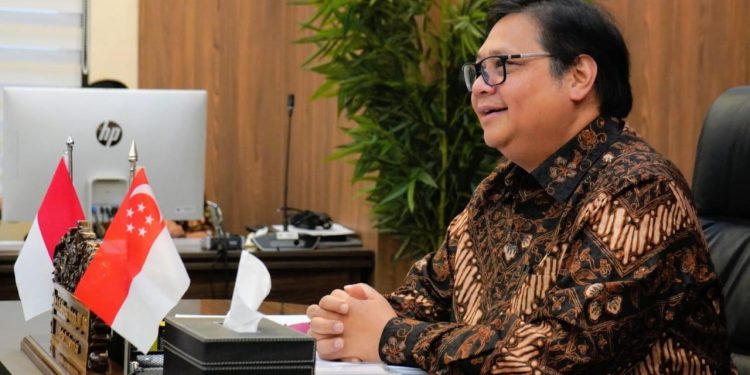

(By Ketut D. P. Yoga and Boni Facius Justin)The COVID-19 pandemic is devastating economies around the globe, including Indonesia’s. Major enterprises may have various options to overcome the hurdles. However, Indonesian micro, small and medium-sized enterprises may not have the same options.
New or existing MSMEs are inches away from going out of business because of various issues. These may be cash-flow issues due to outstanding debt and liabilities, or simply a massive loss of customers.
It is worth noting that MSMEs may seem to be increasing in number despite the outbreak. This may mislead people into believing that MSMEs are thriving amid the pandemic. However, this is the result of massive terminations of employment or salary reductions. In order to gain extra income, employees often turn to creating small businesses. Most of these involve selling food and beverages through online platform and social media, which can be easily done.

Indonesian government’s take on MSMEs
Despite the above, the Indonesian government recognizes the threat to MSMEs due to the pandemic. The minister of cooperatives and SMEs has warned that around 50% of MSMEs may go out of business.
The problem here lies with the reduction of physical meetings. Most MSMEs rely on physical interaction to engage with buyers and suppliers. If the pandemic drags on much longer, most MSMEs thus will need to adjust to online markets and may struggle to find new customers just to make ends meet.
It should be noted that MSMEs have a great role in Indonesia’s economic development and absorption of manpower. It is thus a great concern for the government to help these enterprises stay afloat. To do so, it has issued Government Regulation No. 23 of 2020 on Implementation of a National Economic-Recovery Program.
The government’s plan is to provide several economic stimuli. Some of these are allocations of funds through a bond for banks. In return, the banks must support debt restructuring or financing programs for those in need. Another would be investment and providing securities.
These stimuli may seem promising for MSMEs. However, their implementation has been challenging on the bureaucratic level. The stimulus on debt relaxation and restructuring was delayed by a lack of implementing regulation from the relevant government institution.

District governments’ involvement
Indonesia, with its huge population and territory, should not directly adopt other countries’ policies. The economic stimuli mentioned above are adopted from neighboring countries, including Singapore and Malaysia. Such policy was indeed effective there because it suits their culture and condition. However, the Indonesian government should take into account the diversity of the citizenry to adopt a policy for MSMEs.
In light of the above, the role of district governments can also be significant and should be taken into consideration. It should be admitted that the district government is the body that better understands the varying problems encountered by the MSMEs in their respective regions. Therefore, district governments should issue their own regulations to prevent MSMEs from going out of business.
Proposed scope of district regulations
District governments may issue regulations in favor of MSMEs. One approach could provide a legal basis to cooperate with local companies that are not so affected by the pandemic. These companies mostly focus on daily needs such as the agriculture or health sector. The purpose of such cooperation is to seek assistance from the private sector to support MSMEs.
The assistance may be in the form of financial aid and/or training and product development. The training may help MSMEs cope with digital marketing activities. Additionally, it is an opportunity for the district government to encourage private companies to fulfill their corporate social responsibility.

Second, regulations may impose obligations to use products made by the local MSMEs. This aims to stimulate the economic development for the MSMEs and promote their products at the same time. This is crucial, since financial aid and training for MSMEs will not suffice unless there is greater demand from the market. In the long run, this may help form a bigger market for MSMEs.
It is worth noting that this type of policy is not unheard of in the business sector. Massive projects involving public-private partnerships oblige project owners and contractors to procure some of their materials locally.
Indonesian communities: helping hand
On the other hand, all of the above still may not suffice to support MSMEs. It requires the involvement of the whole community, in particular youth initiative. In this digital era, younger generations tend to grasp a better understanding of this trend. They may also maximize the use of digital transactions to obtain profit. The youth initiative thus may help create a trend to help MSMEs boost sales of local products.
The first step would be to cooperate with promising young individuals. These individuals may provide greater insight depending on their background, such as in non-governmental organizations or startups.
Additionally, those with greater expertise may provide further assistance in the form of consultancy. Their advice should aim to help address issues such as cash flow, marketing, raw-material prices and even funding. The government then in response may provide a specific solution for these issues affecting MSMEs.
The government may need to conduct further analysis on the above suggested approach. Nonetheless, it should not be disputed that it will require a joint effort from every stakeholder to resolve these challenges. The government as the main stakeholder should pave the way for others to join in and support MSMEs.
Source: Asia Times
桂ICP备14000177号 Copyright@2006-2013 Guangxi China-ASEAN Panorama Magazine Agency Co., Ltd. All Rights Reserved